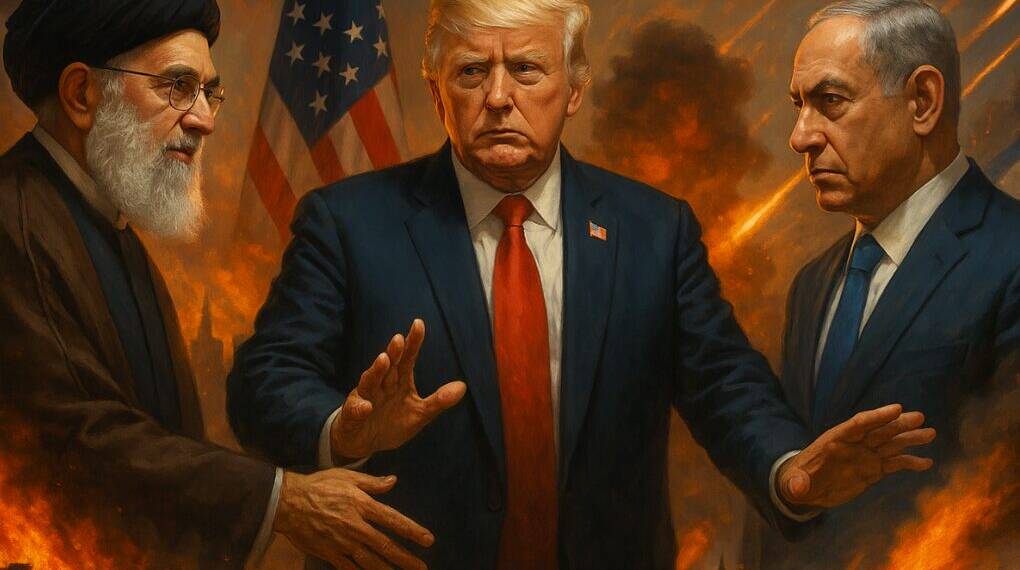Pakistan’s Army Chief Field Marshal Asim Munir has recommended Donald Trump for a Nobel Peace Prize — a move that contradicts the former U.S. President’s actions, which have escalated a wider Israel-Iran conflict rather than ending the two ongoing wars within 24 hours of assuming office, as promised by him.
US President Donald Trump has long made his aspirations for a Nobel Peace Prize known. During his 2025 inauguration, he declared that his “proudest legacy will be that of a peacemaker and unifier,” underlining the importance he places on global recognition for his diplomatic efforts.
Trump’s desire for the Nobel Peace Prize has resurfaced in headlines, following praise from Pakistan’s Army Chief for allegedly helping prevent a nuclear war between India and Pakistan. The endorsement, paired with Trump’s own renewed focus on peacemaking initiatives, has reignited debate over whether his latest diplomatic gestures are grounded in genuine statecraft or a desire to shape his legacy.
Field Marshal Asim Munir, Pakistan’s Chief of Army Staff, was hosted for lunch at the White House earlier this month after recommending that Trump be nominated for the Nobel Peace Prize. Munir lauded Trump’s role in what he described as the de-escalation of military tensions in South Asia following the April 22 terror attack in Pahalgam, Kashmir. White House spokesperson Anna Kelly confirmed that Munir’s remarks were “a key reason” for the invitation.
The claims, however, have been met with firm rebuttals from New Delhi. India has consistently denied any role played by Washington in defusing the situation. Prime Minister Narendra Modi reportedly told Trump during a phone call that the decision to halt cross-border military action in May was reached directly through communication between the Indian and Pakistani armies—without any third-party mediation.
Despite this, Trump has repeatedly claimed credit for stopping the hostilities. “I stopped the war between Pakistan—I love Pakistan—and I think Modi is a fantastic man,” Trump said during a public appearance. “They were both going at it, both nuclear countries. I got it stopped.”
This renewed push for global recognition comes amid a broader campaign by Trump to secure a place in history as a peace broker. In 2018, then-Japanese Prime Minister Shinzo Abe formally nominated Trump for his diplomatic overtures toward North Korea. South Korean President Moon Jae-in also praised his role in the historic talks with Kim Jong Un. Trump’s supporters in the US Congress have submitted similar nominations over the years, most recently citing his involvement in the Abraham Accords and temporary ceasefires in Ukraine and Gaza.
But Analysts argue that Trump’s approach to foreign policy often aligns him with authoritarian regimes and contributes to strategic instability. Last week, Trump helped broker a 30-day pause in strikes on energy infrastructure between Russia and Ukraine. But that came shortly after a contentious Oval Office meeting with Ukrainian President Volodymyr Zelensky, during which Trump temporarily froze US military aid and to Kyiv as well as intelligence sharing.
According to the Nobel Committee, the Peace Prize is awarded for efforts in arms control, peace negotiations, human rights, and international cooperation. Whether Trump’s track record fits the criteria remains a matter of intense debate.
Trump, who vowed to end the Ukraine-Russia and Israel-Hamas wars within 24 hours during his presidential campaign, now faces criticism for igniting Israel-Iran war.
Trump has repeatedly criticized the Nobel Committee for overlooking his efforts, especially in contrast to former President Barack Obama, who was awarded the Peace Prize in 2009—less than a year into his first term. “If I were named Obama, I would’ve had the Nobel Prize handed to me in ten seconds,” Trump told a crowd at the Detroit Economic Club in October.








